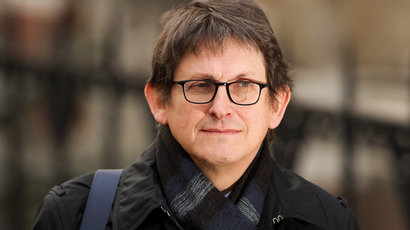Britain rejects EU watchdog plan to probe data-gathering practices - report

The UK has rejected a call from an EU watchdog to probe how security agencies intercept metadata. Documents divulged by Edward Snowden revealed the covert practices of British spy body GCHQ in what has been described as “breach of fundamental rights.”
UK newspaper the Guardian reported that Britain sought to
“disassociate itself” from a Council of Europe draft
resolution urging an investigation into data gathering
techniques. The European watchdog is currently holding a
conference in the Serbian capital of Belgrade entitled ‘Freedom
of Expression and Democracy in the Digital Age’ which seeks to
ensure intelligence gathering practices abide by the European
Convention on Human Rights.
To this end the Council has produced a report entitled ‘Political
Declaration and Resolutions’, outlining recommendations to
safeguard against “abuse which may undermine or even destroy
democracy.”
A clause (13(v)) in the report urges for an inquiry into the
gathering of “vast amounts of electronic communications data
on individuals by security agencies, the deliberate building of
flaws and ‘backdoors’ in the security system of the internet of
otherwise deliberately weakening encryption.”
The UK has moved to exempt itself from this particular part of
the document, claiming it was “unable to agree to it.”
"The United Kingdom needs to place formally on record that
while it has not blocked consensus on this text, the UK needs to
disassociate itself from paragraph 13(v). The UK strongly
supports the overall approach of the resolution including
supporting a free and open internet that promotes freedom of
expression,” said the declaration obtained by the Guardian.
The UK, however, accepted that data could be gathered by security
agencies for “a legitimate aim” as long as it is in
conjunction with existing human rights legislation and the rule
of law.
Security leaks divulged by former CIA worker Edward Snowden blew
the whistle on the GCHQ’s multiple intelligence gathering
activities and its collusion with the NSA. As well as gathering
troves of metadata and recording millions of telephone calls, the
latest reports obtained by Der Spiegel found that the GCHQ was
spying on data exchange companies through a spoof version of the
social network site LinkedIn.
Using a method known as ‘Quantum insert’ the GCHQ created dummy
versions of the website to target organizations and individuals
and smuggle malware onto their computers.
“For LinkedIn the success rate [of rerouting a target to a
malicious website] is looking to be greater than 50 percent,”
said the leaked documents.
In addition, more information was revealed at the beginning of
November as to the extent of the GCHQ’s cooperation with the NSA.
Reports emerged that the GCHQ was feeding the NSA with the
internal information intercepted from Google’s and Yahoo’s
private networks.
So far the British government has done little to allay fears that
UK spy agencies are acting outside the law in violation of human
rights.
The Center for European Policy Studies published a paper accusing
the UK along with other European countries of systematically
violating human rights with their spy practices.
"We are witnessing a systematic breach of people's fundamental
rights," wrote Sergio Carrera, a Spanish jurist who
co-authored the paper with Francesco Ragazzi, a professor of
international relations at Leiden University in the Netherlands.
They called for action from the EU parliament to distinguish
“democracies from police states.”














